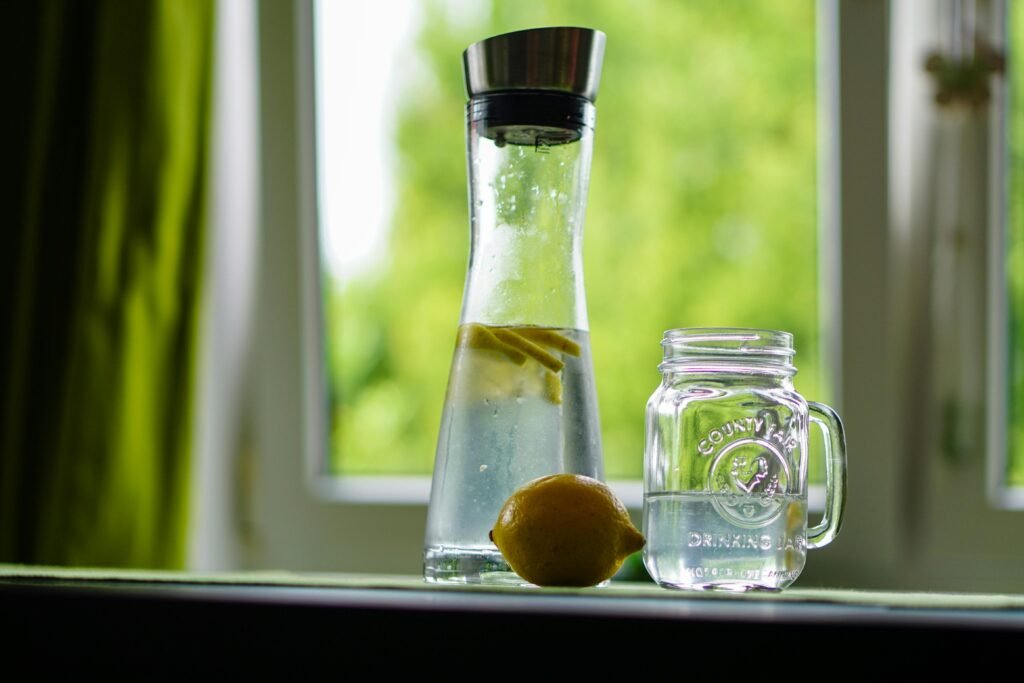What Are The Best Hydration Strategies For Seniors?

How can seniors ensure optimal hydration to support their overall health and well-being? As the aging process changes the body’s water balance and thirst perception, it becomes crucial for older adults to embrace comprehensive hydration strategies.
Dehydration can lead to various health issues for older adults, including cognitive decline, kidney problems, and an increased risk of falls. From thoroughly understanding age-related hydration challenges to successfully incorporating hydrating foods and beverages, there are several practical tips to help seniors maintain proper fluid balance.
Continue reading on to learn more about how older individuals can enhance their vitality, cognitive function, and overall quality of life through hydration.
Table of Contents
Factors Affecting Hydration in Seniors
Several factors significantly impact hydration in older people, necessitating a thoughtful approach to maintaining optimal fluid balance. Age-related changes alter the body’s water distribution and diminish the instinct of thirst, where older adults may not feel as thirsty as younger individuals, leading to reduced fluid intake.
Medical conditions and medications common in older age may work to exacerbate dehydration. Conditions like diabetes and kidney disease may increase urine output, while drugs such as diuretics contribute to fluid loss.
Mobility limitations and cognitive failure can further complicate accessing and consuming liquids independently. Diminished kidney function among older individuals can severely affect the body’s ability to concentrate urine, making seniors more susceptible to dehydration.
Cognitive decline, including conditions like dementia, may hinder the recognition of thirst cues and the ability to communicate the need for fluids. Social factors like living alone or the need for a support system may contribute to neglecting hydration needs.
Environmental factors also play a role, as seniors may be more sensitive to temperature extremes, which could potentially lead to increased fluid losses due to sweating or reduced intake due to discomfort.
The Best Hydration Strategies for Seniors
A comprehensive approach to hydration for seniors involves a combination of scientifically supported strategies. These methods mitigate the risks associated with dehydration but also support the overall health and wellness of older people.
Choosing Hydrating Beverages
Water remains the most essential and effective source of hydration. The human body relies on water for various physiological processes, including digestion, nutrient transportation, and temperature regulation.
Seniors should aim for a daily water intake that aligns with their specific needs, considering age, weight, and activity level. Incorporating electrolyte-rich beverages, such as sports drinks or oral rehydration solutions, into their daily regimen may also be beneficial in reducing the risk of dehydration.
Adjust to Preferences
Understanding and accommodating individual preferences is key to sustaining proper hydration within the senior community. Some may find it challenging to consume large volumes of plain or unflavored water, leading to potential dehydration risks.
To address this, seniors can explore flavored water options or infuse water with fruits and herbs, enhancing palatability without compromising hydration efficacy.
IV Rehydration Therapy
IV rehydration allows for direct administration of fluids and electrolytes into the bloodstream, ensuring rapid absorption and restoration of hydration balance.
Home IV therapy in Ballard is particularly useful to correct dehydration quickly or for seniors with conditions that compromise their ability to take fluids orally. IV rehydration therapy provides a precise and controlled means of addressing dehydration. As with any new medication, always consult with a medical professional before considering IV therapy.
Address Medication Impact
Seniors often take medications that can impact their hydration status. Certain medications, including diuretics, can increase urine production, leading to a greater risk of dehydration. Healthcare providers must monitor and adjust medication regimens accordingly, considering their potential effects on fluid balance.
Patients and caregivers should be educated about the importance of maintaining hydration while on specific medications, ensuring a proactive approach to preventing dehydration-related complications.
Consider Health Conditions
Seniors may have pre-existing health conditions that can affect their hydration needs. Conditions such as diabetes, kidney disease, and heart failure require careful consideration of fluid intake to manage the delicate balance of electrolytes and fluids within the body.
Individualized hydration plans, developed in collaboration with healthcare professionals, can address the unique challenges posed by underlying health conditions. Regular monitoring of hydration status through laboratory tests and clinical assessments is essential to ensure optimal fluid balance.
Adopting a Hydration-Supportive Lifestyle
Adequate hydration supports cardiovascular health, helps prevent urinary tract infections, and aids in digestion, reducing the risk of constipation. Proper fluid balance is essential for effective medication absorption and distribution.
Hydration also regulates temperature and prevents heat-related illnesses. It contributes to skin health by reducing dryness and irritation and helps maintain emotional well-being by mitigating feelings of irritability and fatigue. It also plays a role in fall prevention by sustaining balance and reducing dizziness.
Final Words
Encouraging regular water intake, monitoring fluid levels, and incorporating hydrating foods can combat age-related dehydration challenges. Establishing a routine and utilizing reminders can help overcome reduced thirst sensations.
Caregivers and healthcare providers are vital in educating seniors about hydration and addressing barriers to adequate fluid intake. Focusing more on hydration can significantly contribute to the quality of life of older people, encouraging independence and ensuring they enjoy their later years to the fullest.








